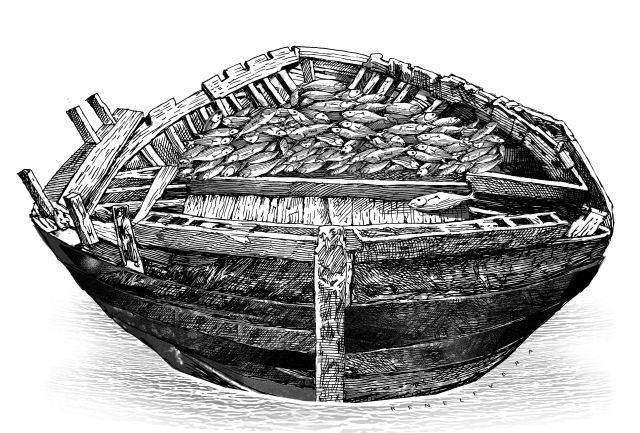Four years ago, I learned on TV about a huge gathering in a stadium in Dublin, Ireland. This caught my attention for three reasons. First, the stadium was Croke Park, where years ago I watched a hurling game in the All-Ireland, my first-ever experience of the kind. Second, the event was the Statio Orbis or closing mass of the International Eucharistic Congress – a name that had for me many evocations. And third, in that mass the pope announced that the next congress four years thereafter would be in the Philippines, in Cebu.
I will not talk about the hurling match, although Galway – then my adoptive city – had won it (perhaps, because victories become the more certain the poorer the memory). Instead, I will touch upon the congress. In high school, the nuns taught us a hymn, No mas amor que el tuyo, which the International Eucharistic Congress held in Manila in 1937 used for its anthem. And so every mention of the congress evoked the song, and the song in turn evoked my wasted but exciting youth.
Knowing that, after Dublin, the congress would advance to Cebu, and 75 years had passed since its last visit to the Philippines, the wife and I did the math and figured out that we might not be around when the congress would come back again, and so we resolved to take part in it this time. Eight months before D-day, we signed up. Not one to leave anything to chance, the wife booked a room for us in a hotel near the site, but, because of the cost, for only three of the full length of seven days.
Day One of the congress, the 51st, found us at ground zero – a pavilion so capacious that it could house the 15,000-odd people in attendance, coming from upwards of 70 countries. Coincidentally, a construction firm, owned and managed by a devout couple, our close friends for nearly 40 years, built the pavilion without any financial outlay from the Church, the couple’s faith gift, the construction cost to be recouped from the use of a portion of Church grounds for a certain number of years.
We sat in on all of the activities in the pavilion – the Morning Prayer, catechesis, mass, adoration of the Holy Eucharist. We found the atmosphere there uplifting, and, at one time, quite off the cuff and really meaning it, I remarked to a priest that the whole experience reminded me of Pentecost.
The focus of the congress was, of course, the Eucharist – the Sacrament of the Real Presence of Christ in the bread and wine that the priest consecrates during the mass, and of which the faithful partake in Holy Communion. This mystery of faith finds summation in the hymn, O Sacrum Convivium, which Thomas Aquinas wrote: “O sacred banquet at which Christ is consumed, the memory of his Passion is recalled, our souls are filled with grace, and the pledge of future glory is given to us.”
In a catechesis (religious instruction), one of the speakers said that, at the moment before his Passion, when everything seemed to fall through and he stood on the threshold of despair, Jesus instituted the Sacrament of the Eucharist. At supper, he held the bread and said, “This is my body,” and the wine, “This is my blood,” and passed the bread and wine around, and urged the apostles thenceforth to do the same in his memory. At the darkest hour, he gave to them and to us the Eucharist, the Sacrament of Hope.
During the closing mass or Statio Orbis (a Latin phrase which I take as a place where the world stands before God to celebrate His presence in their midst), this time a vast field beside the sea, on which a million people had gathered, I caught sight of a small fishing boat not too far from the edge of the water. I knew that its occupant was gazing over the crowd at the altar of the small chapel where at that very moment the mass was solemnized.
Immediately I recalled a similar boat on the Sea of Galilee, which Jesus got into when the crowds pressed in on him to listen to his words. The boat belonged to someone named Simon. Jesus asked Simon to put his boat out a short distance from the shore, and then sat down and taught the crowds from the boat. After that, Jesus told Simon to launch into the deep and there lower the nets for a catch, which Simon did (but not without protest because they had worked all night and caught nothing), but this time to his surprise he and companions hauled in so much fish that their nets all but broke apart, at which Simon fell on his knees and exclaimed, “Depart from me, Lord, for I am a sinful man.” Two brothers, James and John, likewise fishermen, witnessed all of this in astonishment. Jesus then told Simon, “Do not be afraid, from now on you will be catching men.” The evangelist Luke, who wrote this account, concludes – “When they brought their boats to the shore, they left everything and followed him.”
While watching the station of the world, the Statio Orbis, did the fisherman in that small vessel on the adjoining sea think of pulling his boat up to the shore and joining the crowd, for the moment to leave everything, which perhaps the boat was to him, and just be with the people and the Lord in the Eucharist, and afterwards to decide, as everyone in the gathering was to decide, to find everything in Christ, to leave everything for Everything?
Disclaimer: The comments uploaded on this site do not necessarily represent or reflect the views of management and owner of Cebudailynews. We reserve the right to exclude comments that we deem to be inconsistent with our editorial standards.

